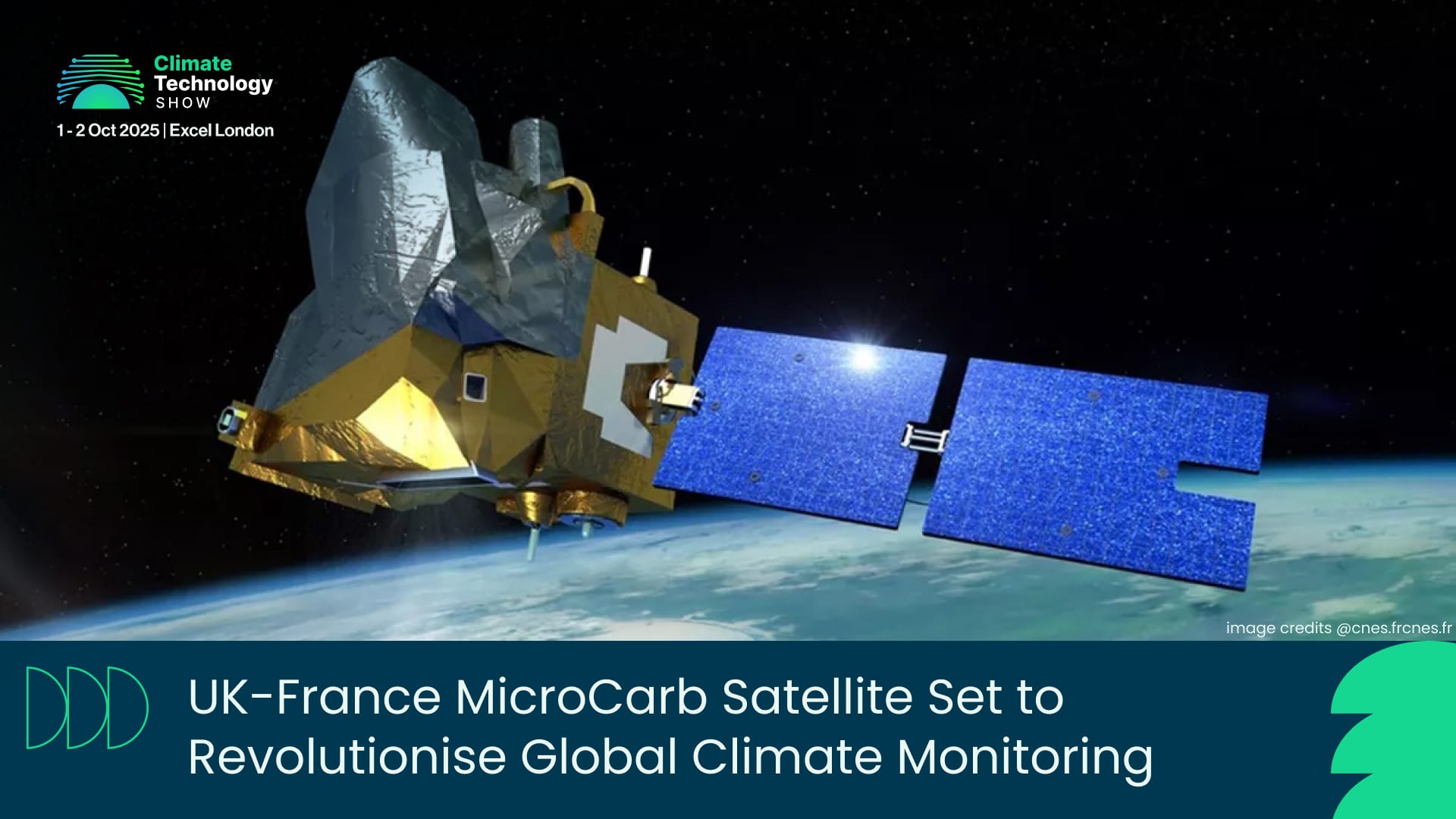In a landmark moment for international climate science, the UK-France-developed MicroCarb satellite has been successfully launched into orbit, marking Europe’s first dedicated carbon dioxide monitoring mission. Launched aboard a Vega-C rocket from Kourou, French Guiana, MicroCarb will significantly enhance global climate surveillance, bringing unprecedented accuracy to urban CO₂ mapping.
The mission, a collaboration between the UK Space Agency and France’s CNES, is supported by a £15 million UK Government investment. MicroCarb will orbit 650km above Earth and use revolutionary city-scanning technology to measure CO₂ emissions at a highly detailed 2km x 2km resolution. This level of precision is critical, as cities account for more than 70% of global CO₂ output.
UK Minister for Space, Sir Chris Bryant, hailed the mission as a major achievement:
“This groundbreaking mission is proof of what can be achieved when we harness the strength of Britain’s burgeoning space industry, together with our deep scientific expertise. Bolstered with £15 million UK Government backing, the MicroCarb satellite will overhaul our ability to track carbon emissions – supporting the clean energy mission that’s key to this Government’s Plan for Change.
“It’s also further evidence of the value of our deep and unique relationship with France: a partnership which the Prime Minister reinforced, with President Macron, at the UK-France Summit earlier this month.”
As part of the international greenhouse gas virtual constellation, MicroCarb will feed into a global network of satellites, helping to verify climate targets and guide net zero strategies. Governments will be able to use the data to track progress against the Paris Agreement and implement effective carbon reduction policies.
Dr Paul Bate, Chief Executive of the UK Space Agency, emphasised the critical role of space-based observation:
“Satellites like MicroCarb are our eyes in the sky. Over half of the critical data we use to understand climate change comes from space, and MicroCarb’s successful launch is a major leap forward in our ability to track carbon emissions and absorption with unprecedented accuracy, from the world’s cities to its forests and oceans.
“Backed by UK and French investment and expertise, it’s a proud moment for both our space sectors and a powerful example of international collaboration in action.”
In addition to measuring emissions, the satellite will assess natural carbon sinks, including forests and oceans, and detect Solar Induced Fluorescence (SIF)—a faint light emitted during plant photosynthesis. By measuring SIF, scientists can better understand plant carbon absorption and distinguish between natural and man-made CO₂ sources.
UK science and industry have played a key role throughout the mission. The National Physical Laboratory (NPL) contributed a ground calibration facility and is collaborating on algorithm development to ensure data accuracy. Thales Alenia Space in the UK handled satellite integration and testing, while RAL Space developed the pointing and calibration system to support precise readings.
GMV UK, working alongside France’s Capgemini, is designing and verifying the operational software that will process MicroCarb’s data. Meanwhile, leading UK researchers are translating the data into actionable insights. Professor Paul Palmer of the University of Edinburgh and the National Centre for Earth Observation (NCEO) leads the UK’s scientific efforts.
“Currently, we are witnessing rapid and unprecedented changes in the global carbon cycle. MicroCarb will deliver SIF and atmospheric CO₂ data that are crucial for understanding those changes. It will also reinvigorate an aging virtual satellite constellation, providing high quality data to inform the next Global Stocktake of the Paris Agreement.
“More broadly, MicroCarb exemplifies the world-class capabilities of UK science and engineering, working closely with our French colleagues.”
Dr Rob Parker of the University of Leicester, also with NCEO, is leading the development of the mission’s SIF retrieval algorithms.
The MicroCarb project stems from a long-standing UK-France bilateral agreement signed in 2014 and renewed in 2021. UK scientists have worked closely with French counterparts as members of the Mission Advisory Group and will continue to be involved during post-launch calibration and validation.
As the world accelerates efforts to cap global warming at 1.5°C, MicroCarb offers a powerful new tool to ensure nations are held accountable and supported with robust data. The satellite’s first public data sets are expected within a year, offering critical insight into urban emissions and the role of natural carbon sinks. These findings will influence global climate assessments and future Earth observation initiatives led by the UK.

